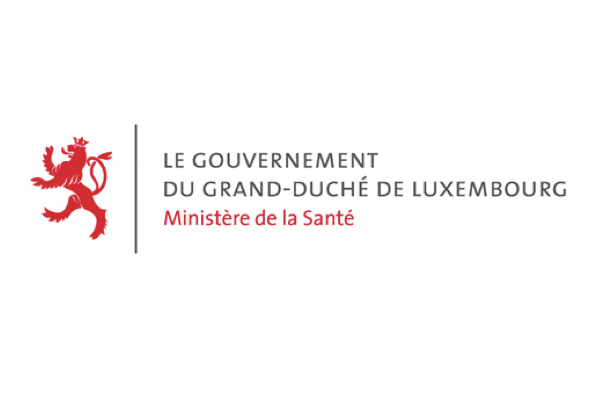
On Monday 20 October 2025, Luxembourg’s Ministry of Health and Social Security launched its prevention campaign against winter respiratory infections.
According to the ministry, every winter sees a resurgence of respiratory infections such as influenza and bronchiolitis caused by the respiratory syncytial virus (RSV) and reminded the public of the importance of preventing respiratory infections, many of which can be avoided through vaccination (RSV, influenza, whooping cough, pneumococcal pneumonia and COVID-19).
The ministry detailed that in 2024, surveillance of respiratory infections in Luxembourg revealed several trends for the 2024–2025 winter season:
• COVID-19: The number of cases fell sharply compared to 2023, with no significant winter wave for the first time since the pandemic. However, vigilance remains necessary, as the disease can still take severe forms in elderly or vulnerable individuals;
• Influenza: The 2024–2025 season was particularly intense, with several viruses circulating simultaneously and a peak exceeding 2,500 weekly cases. Influenza can affect anyone, but complications mainly occur in older adults, pregnant women and people with chronic illnesses or weakened immune systems;
• Bronchiolitis (Respiratory Syncytial Virus – RSV): Over 1,600 cases were recorded, mainly among young children. Thanks to maternal immunisation during pregnancy and monoclonal antibodies administered to newborns and infants, hospitalisations of babies have significantly decreased. Nonetheless, bronchiolitis remains a frequent cause of respiratory distress in infants;
• Whooping cough (pertussis): In 2024, a major outbreak affected more than 1,200 people, mainly teenagers. This highly contagious infection, which is dangerous for infants, causes a persistent cough that can be disabling for adults, highlighting the importance of vaccination and booster doses according to the national immunisation schedule;
• Pneumococcal pneumonia: These infections, which can complicate an otherwise mild viral infection, may be severe, particularly in young children, older adults and immunocompromised individuals. Pneumococcal-related mortality remains significant.
Under the slogan “A respiratory infection is anything but trendy”, the ministry relaunched its communication campaign from mid-October onwards which aims to inform the public about preventive measures and available immunisations while reiterating the essential role of vaccination.
Vaccination remains one of the most effective ways to protect oneself against respiratory infections. It is therefore important to keep vaccinations up to date.
People at risk — particularly older adults and those with chronic illnesses or weakened immune systems — are encouraged to get vaccinated against influenza, pneumococcal infections and COVID-19.
Pregnant women should be vaccinated against influenza, whooping cough and RSV to protect themselves and their babies from birth and during the first six months of life.
The ideal time to get protected against influenza is October ensuring protection throughout the winter when infections circulate most actively.
From the 2025–2026 season, the Higher Council for Infectious Diseases (CSMI) has issued two new recommendations regarding influenza protection:
• for people aged 65 and over: It is recommended to use “high-dose” vaccines (containing a greater quantity of antigen to elicit a stronger immune response) or “adjuvanted” vaccines (containing a substance that boosts vaccine efficacy). These formulations are designed to provide better protection for older adults, whose immune systems may be less responsive. If these vaccines are unavailable, a standard-dose vaccine remains an effective alternative;
• for children and adolescents aged 2 to 17 years: Vaccination against influenza is recommended to reduce infection rates in this age group, as well as complications and transmission of the virus to vulnerable populations. The influenza vaccine (standard dose, same injectable product as for adults) will be available free of charge from pharmacies upon presentation of a medical prescription.
The ministry recommends contacting one’s GP to discuss the most appropriate vaccination.
The ministry also reminded the public of essential hygiene measures to limit the spread of viruses:
• wash hands regularly with soap and water;
• air rooms daily, even in cold weather;
• avoid close contact with vulnerable people if you have symptoms;
• wear a mask if you are coughing, have a fever or when visiting healthcare settings;
• cover your mouth and nose when coughing or sneezing.
On Thursday 16 October 2025, the Health Directorate resumed publishing weekly reports on the evolution of respiratory infections during the winter period. These can be consulted weekly on the website santesecu.lu.
Additional information:
• Epidemiological Report on Communicable Diseases in Luxembourg 2024: https://santesecu.public.lu/fr/publications/r/rapport-epidemiologique-maladies-transmissibles.html
• CSMI Recommendations – Seasonal Influenza Vaccination: https://santesecu.public.lu/fr/espace-professionnel/recommandations/conseil-maladies-infectieuses/grippe-saisonniere.html
• Thematic file on respiratory infections: https://santesecu.public.lu/fr/espace-citoyen/dossiers-thematiques/i/infections-respiratoires.html
• Campaign “A respiratory infection is anything but trendy”: https://santesecu.public.lu/fr/campagnes/2024/infection-respiratoire.html








